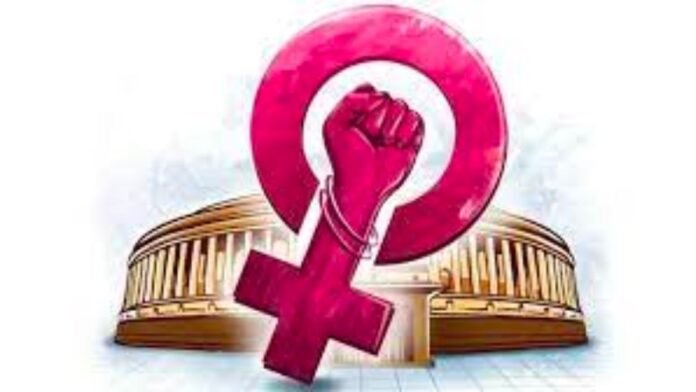After joining the new parliament, the long-awaited measure was tabled, opening Pandora’s box. The women’s reservation bill is currently the focus of our discussions on a new reservation bill.
It supposedly empowers women. Every civilized nation should empower women. Only reservation-based backdoor admission to Lok Sabha? The idea that reservation-generated equality will exist in this world of equality shocks me.
As Purush Ayog president, Barkha Trehan, I am disappointed by this decision since it will damage ordinary women in India. Can someone guarantee that this reservation won’t be used for our country’s politics? Caste-based parties in India are benefiting their families, like Rabri Devi, who became Bihar’s Chief Minister without Lalu Prasad Yadava. Although she is a woman, does she belong to the oppressed?
Many political women come from powerful families. Will more influential people stop using family women for power? Can this not hinder future female leaders? Like Mamata Banerji, many women in politics have overcome root-level hardship and are succeeding. What matters is: how many female leaders delegate political authority to women?
Sonia Gandhi preferred to transmit her political power to Rahul Gandhi, but when he failed after many political launches, Priyanka was called for the party’s welfare and salvation.
Leaders say their parties support the law, yet Mayavati, Mamata Banerji, and Rabri Devi did not make their families’ women the legal successors of their political empires. Only here does the question arise.
What guarantees this women’s reservation measure won’t be used for dynasty politics?
What guarantees Loksabha entrance for deserving women? Women in politics have used their husbands’ or relatives’ names. In one incident, Dimple Yadav said, “Bhaiya se kahoongi (I will complain, Bhaiya).” She said “bhaiya” to party cadres at her election rally, referring to her husband Akhilesh Yadav.
One other thing: Lok Sabha members make laws, dispute, and most importantly, grasp international concerns. Foreign and Indian politics should be familiar to her. Can women reservation guarantee a deserving Lok Sabha MP?
Can denying deserving people justice accomplish justice? Dynastic or reservation politics, where interaction and communication are vital to success, should be open and free of encroachments.
This measure worries me, and I think political parties should apply the rule to their own parties before adopting it in Parliament.
Conclusion:-
As the new parliament considers the women’s reservation law, its potential to empower women has been discussed. Some critics say this backdoor entrée into politics could lead to reservation-generated equality. Purush Ayog president Barkha Trehan is disappointed because this decision may hurt Indian women. He wonders if this reservation will be used for dynastic politics or if more powerful women will not use their families…
Many female leaders have overcome the root-level fight and succeeded in politics, but the important question is how many transfer over their political influence to other women. Mayavati, Mamata Banerji, and Rabri Devi have not legitimated their political empires’ female heirs.
The guarantee that the women’s reservation bill won’t be used by dynastic politics and that meritorious women will enter Lok Sabha is questioned. Family women in politics sometimes use the names of their husbands or family members, therefore the field should be open and free of dynastic and reservation politics.
Finally, the women’s reservation bill debate raises issues about reserve-generated equality.



